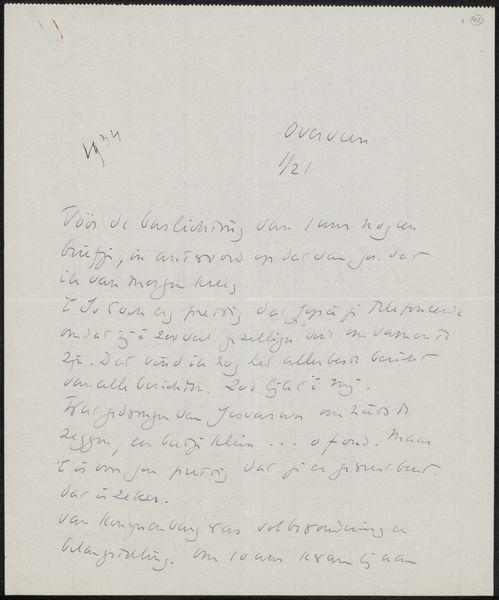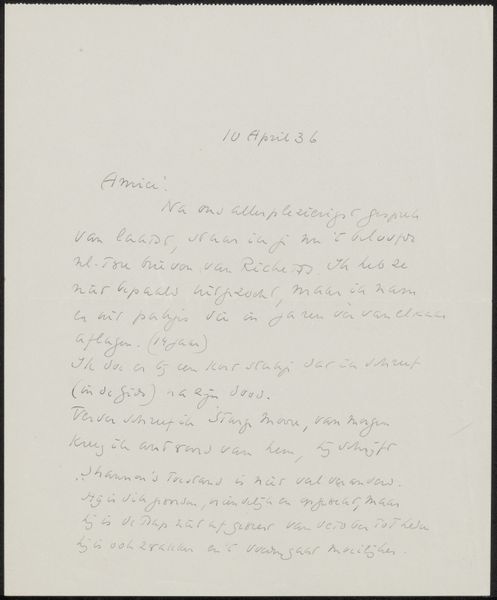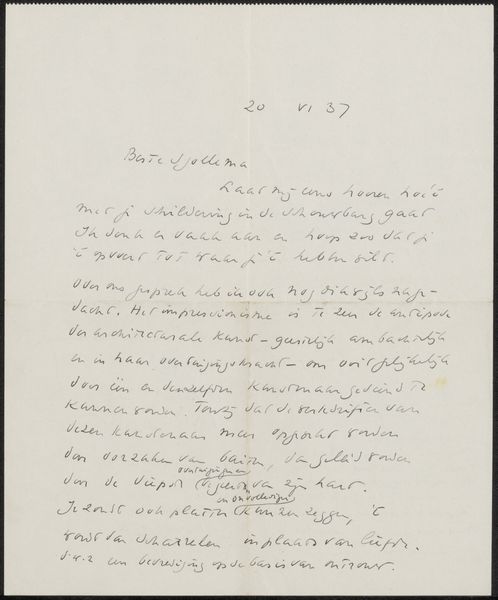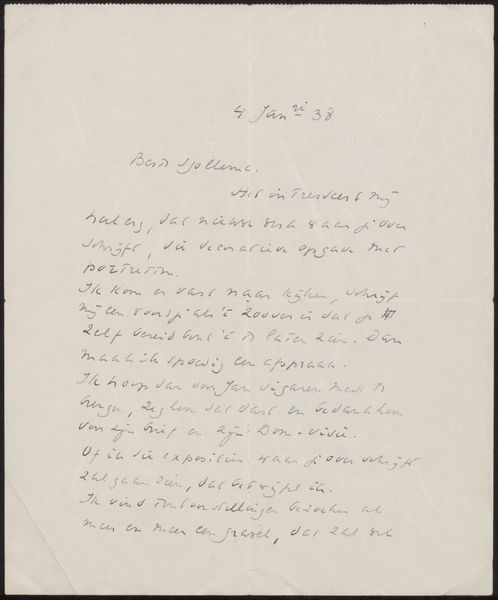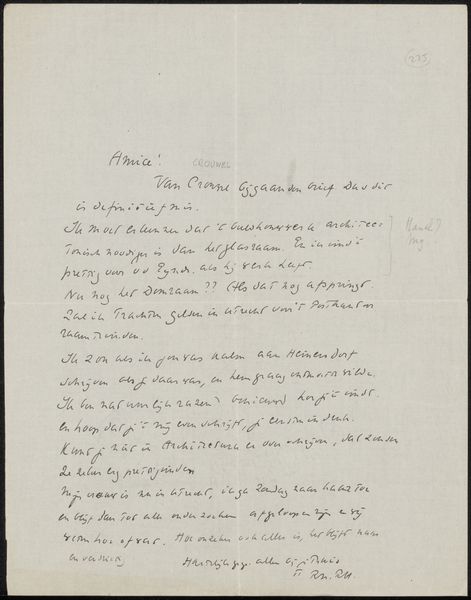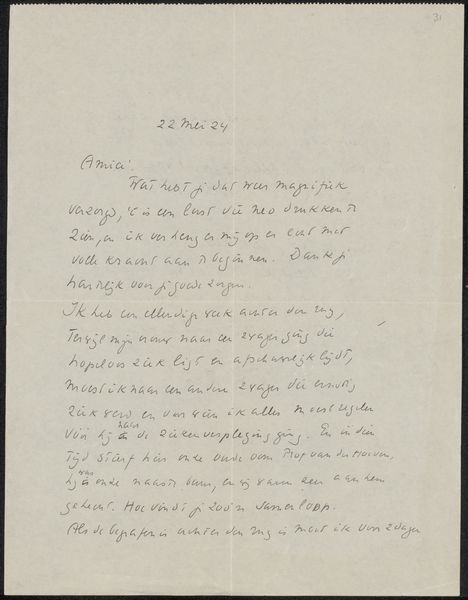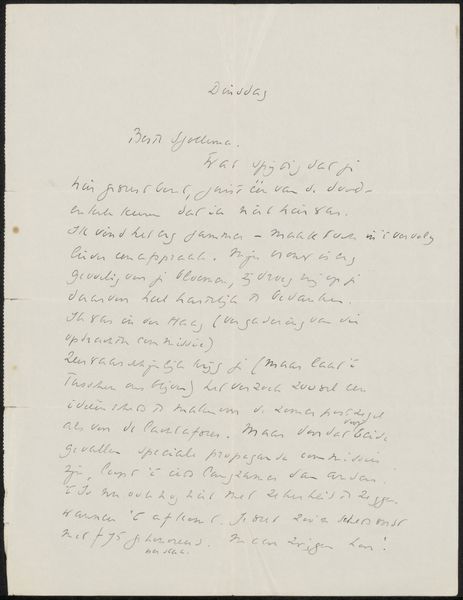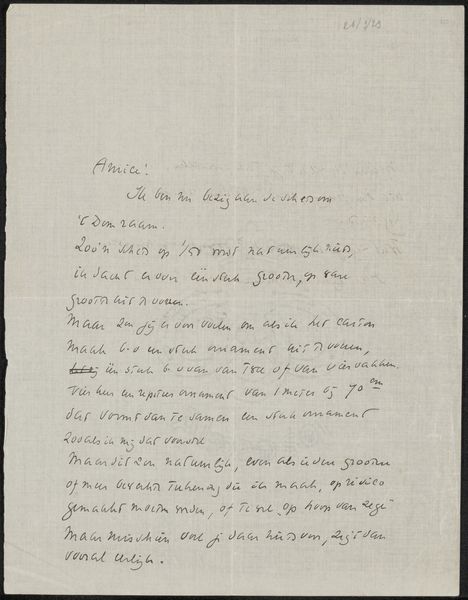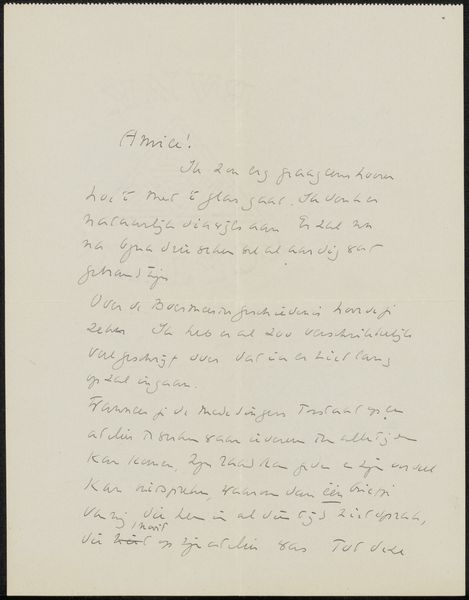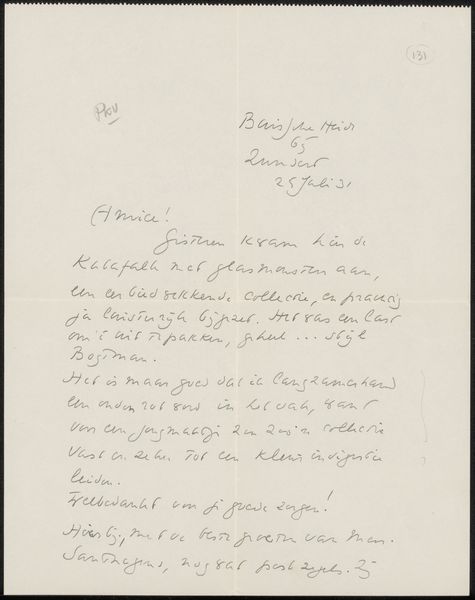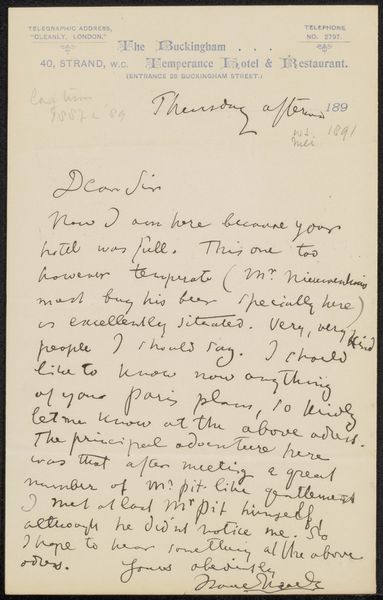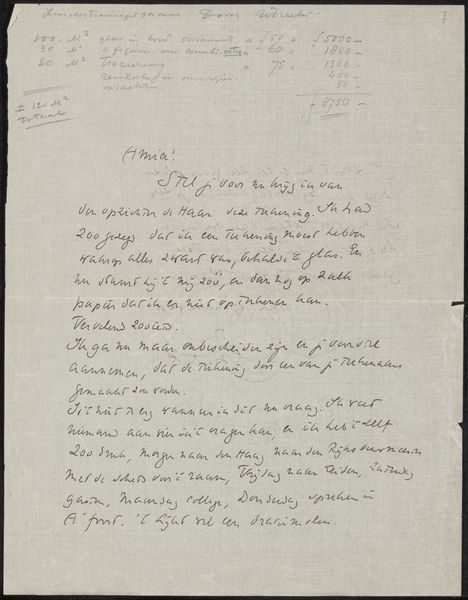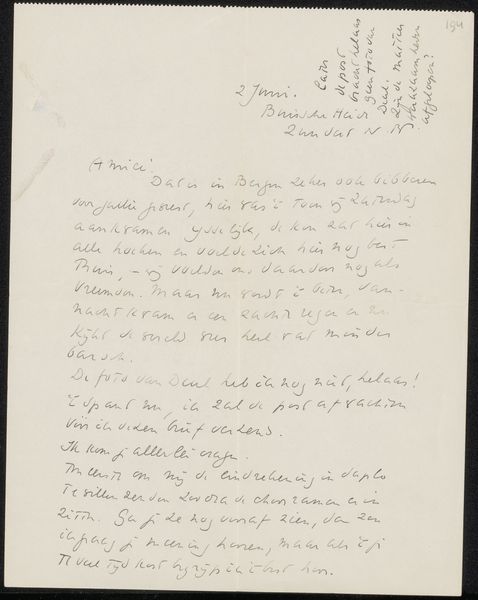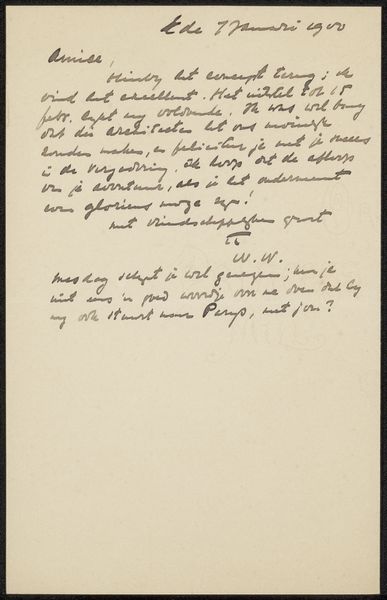
drawing, paper, ink, pen
#
drawing
#
ink paper printed
#
old engraving style
#
hand drawn type
#
paper
#
personal sketchbook
#
ink
#
hand-drawn typeface
#
ink drawing experimentation
#
pen-ink sketch
#
pen work
#
sketchbook drawing
#
pen
#
sketchbook art
#
calligraphy
Copyright: Rijks Museum: Open Domain
Curator: This piece, “Brief aan Willem Bogtman” by Richard Nicolaüs Roland Holst, possibly from 1932-1936, intrigues me with its seemingly simple, personal nature, and yet it speaks volumes about artistic and social circles of the time. Editor: It’s just a letter, made with pen and ink on paper, but it feels… intimate. What strikes you most about it? Curator: The handwriting itself! It isn’t just functional; it's expressive, performative even. Holst, writing to Willem Bogtman. I am interested in exploring that relationship, and wondering: How did class or social status inform who has access to whom, to art, to power? Letters create an archive but can obscure elements, as well. Who and how were such interactions policed at the time? Editor: That's interesting. I hadn't considered the letter as performance. Are you suggesting the act of writing itself held some sort of social weight? Curator: Absolutely. Think about the societal function of letter writing during that period. The laborious practice suggests commitment. We should ask what pressures existed for artists such as Holst – who navigated shifting political and social landscapes during this era – to carefully craft each sentence and each pen stroke in expressing his creativity and intention to foster camaraderie, which seems a valuable sentiment. Editor: So, by examining something as seemingly simple as a handwritten letter, we can actually unearth really complex ideas about social dynamics, artistic networks, and even power structures. It moves beyond just being a personal note. Curator: Precisely. It becomes a powerful artifact ripe for investigation, offering glimpses into a network built around shared values or necessities that underpinned much artistic production of the era. What seemed so fragile upon first glance yields this complexity, something to value as you approach art! Editor: Thank you! Now, I'll definitely look at everyday documents through a completely different lens.
Comments
No comments
Be the first to comment and join the conversation on the ultimate creative platform.
